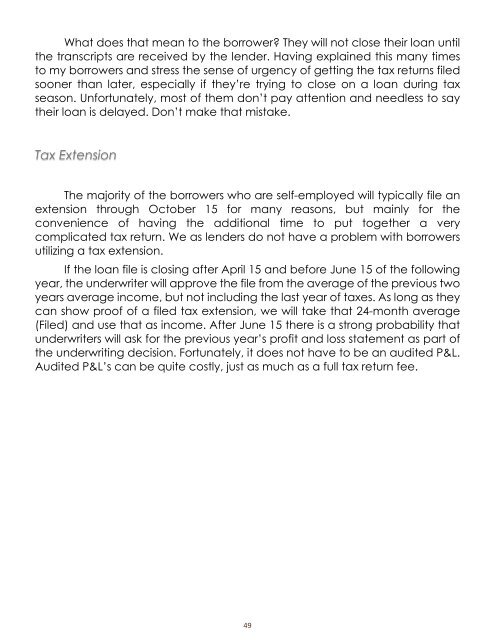You also want an ePaper? Increase the reach of your titles
YUMPU automatically turns print PDFs into web optimized ePapers that Google loves.
What does that mean to the borrower? They will not close their loan until<br />
the transcripts are received <strong>by</strong> the lender. Having explained this many times<br />
to my borrowers and stress the sense of urgency of getting the tax returns filed<br />
sooner than later, especially if they’re trying to close on a loan during tax<br />
season. Unfortunately, most of them don’t pay attention and needless to say<br />
their loan is delayed. Don’t make that mistake.<br />
Tax Extension<br />
The majority of the borrowers who are self-employed will typically file an<br />
extension through October 15 for many reasons, but mainly for the<br />
convenience of having the additional time to put together a very<br />
complicated tax return. We as lenders do not have a problem with borrowers<br />
utilizing a tax extension.<br />
If the loan file is closing after April 15 and before June 15 of the following<br />
year, the underwriter will approve the file from the average of the previous two<br />
years average income, but not including the last year of taxes. As long as they<br />
can show proof of a filed tax extension, we will take that 24-month average<br />
(Filed) and use that as income. After June 15 there is a strong probability that<br />
underwriters will ask for the previous year’s profit and loss statement as part of<br />
the underwriting decision. Fortunately, it does not have to be an audited P&L.<br />
Audited P&L’s can be quite costly, just as much as a full tax return fee.<br />
49


